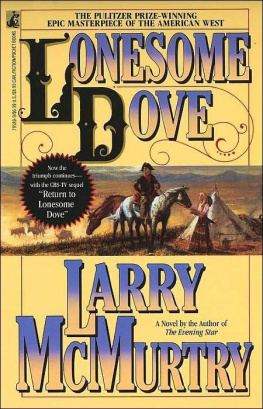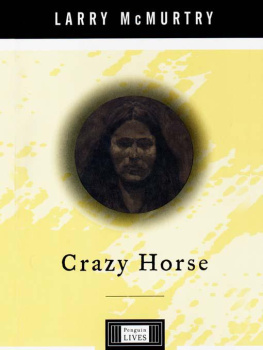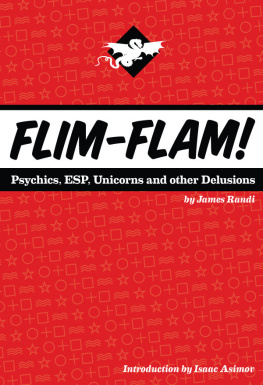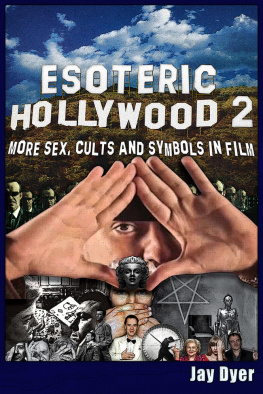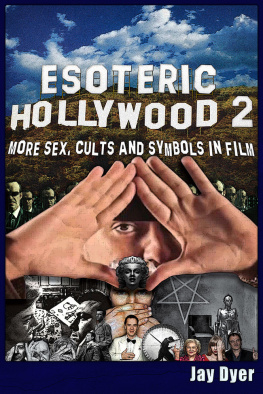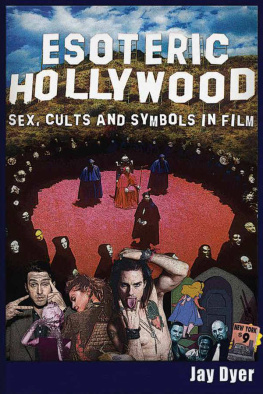Larry McMurtry - Film Flam : Essays on Hollywood
Here you can read online Larry McMurtry - Film Flam : Essays on Hollywood full text of the book (entire story) in english for free. Download pdf and epub, get meaning, cover and reviews about this ebook. year: 1987, publisher: Simon & Schuster, genre: Detective and thriller. Description of the work, (preface) as well as reviews are available. Best literature library LitArk.com created for fans of good reading and offers a wide selection of genres:
Romance novel
Science fiction
Adventure
Detective
Science
History
Home and family
Prose
Art
Politics
Computer
Non-fiction
Religion
Business
Children
Humor
Choose a favorite category and find really read worthwhile books. Enjoy immersion in the world of imagination, feel the emotions of the characters or learn something new for yourself, make an fascinating discovery.

- Book:Film Flam : Essays on Hollywood
- Author:
- Publisher:Simon & Schuster
- Genre:
- Year:1987
- Rating:4 / 5
- Favourites:Add to favourites
- Your mark:
- 80
- 1
- 2
- 3
- 4
- 5
Film Flam : Essays on Hollywood: summary, description and annotation
We offer to read an annotation, description, summary or preface (depends on what the author of the book "Film Flam : Essays on Hollywood" wrote himself). If you haven't found the necessary information about the book — write in the comments, we will try to find it.
Film Flam : Essays on Hollywood — read online for free the complete book (whole text) full work
Below is the text of the book, divided by pages. System saving the place of the last page read, allows you to conveniently read the book "Film Flam : Essays on Hollywood" online for free, without having to search again every time where you left off. Put a bookmark, and you can go to the page where you finished reading at any time.
Font size:
Interval:
Bookmark:

By Larry McMurtry
Paradise
Boones Lick
Roads: Driving Americas Greatest Highways
Still Wild: Short Fiction of the American West 1950 to the Present
Walter Benjamin at the Dairy Queen
Duanes Depressed
Crazy Horse
Comanche Moon
Dead Mans Walk
The Late Child
Streets of Laredo
The Evening Star
Buffalo Girls
Some Can Whistle
Anything for Billy
Film Flam: Essays on Hollywood
Texasville
Lonesome Dove
The Desert Rose
Cadillac Jack
Somebodys Darling
Terms of Endearment
All My Friends Are Going to Be Strangers
Moving On
The Last Picture Show
In a Narrow Grave: Essays on Texas
Leaving Cheyenne
Horseman, Pass By
By Larry McMurtry and Diana Ossana
Pretty Boy Floyd
Zeke and Ned

The first seventeen essays appearing in this compilation were originally published in American Film; The Last Picture Show: A Last Word was originally published in The Colonial Times; Approaching Cheyenne and Movie-Tripping were originally published in New York magazine; and the final essay was published privately by the author in 1986.

TOUCHSTONE
Rockefeller Center
1230 Avenue of the Americas
New York, NY 10020
www.SimonandSchuster.com
Copyright 1987 by Larry McMurtry
All rights reserved,
including the right of reproduction
in whole or in part in any form.
First Touchstone Edition 2001
TOUCHSTONE and colophon are registered trademarks of
Simon & Schuster, Inc.
For information about special discounts for bulk purchases,
please contact Simon & Schuster Special Sales:
1-800-456-6798 or business@simonandschuster.com
Designed by Elina D. Nudelman
Manufactured in the United States of America
10 9 8 7 6 5 4 3 2 1
The Library of Congress has cataloged
the Simon & Schuster edition as follows:
McMurtry, Larry
Film flam.
1. Moving-picturesUnited States. 2. Moving-picture playsHistory and criticism. 3. Moving-pictures authorship. 4. McMurtry, Larry. 5. ScreenwritersUnites StatesBiography. I. Title.
PN1993.5.U6M325 1987 791.430973 87-4667
ISBN 0-671-64308-8
0-7432-1624-5 (Pbk)
eISBN-13: 978-1-4391-2970-8
ISBN-13: 978-0-7432-1624-1
For Mary Alice and Sadie, Dorothy and Jack, Diane, Randy, Robin and Dorriein other words, The Halls

Foreword
ONE REASON FOR NOT COLLECTING SUCH SCATTERED writings as thesesins of commission, all of themis that that which is left scattered need not be reread. I have always found revisiting my novels painful work, and the novels, after all, are the marriages and great loves of ones imagination. In comparison, the columns and articles which follow are quick tricks and one-night stands, the offspring of opportunity rather than passion. When I sat down to look them over I expected to find Siamese squirrels and two-headed calves.
Reading the pieces in galleys was a surprise, not because they were better than I had hoped or worse than I feared, but simply because I had forgotten most of them completely. The emotion one invests in a novel weights any rereading with memorythe memory, at least, of what one felt for, and hoped for, its characters. But these essays evoke no characters and involved no long or loving invention. They moved quickly from head to typewriter and from typewriter to mailbox, to return in their present form as from a blank in my past. Though obviously mine, they seem to be the work of someone I had scarcely meta self with a type-writer of his own, whose prototype is that other Borges whom the Borges we all know has described in a famous story.
My assessment of the weight on the hoof of this small, mixed herd, is, I hope, accurately suggested by the title I have given the collection. At least the pieces seem to enjoy a comfortable perspectivethat of the telephone booth screenwriter who has not caught any of the fevers that rage through the Hollywood flats and the Hollywood hills.
Absence of fever is in itself an uncommon quality in Hollywood booksand a rare quality in the moviemakers of this day and time. The industry has never been more malarial. The egos who slog through its swamps burn with fevers of self-praise, defensiveness, insecurity, and megalomania. Directors or producers who have big hits get so hot the capillaries in their brains promptly pop. Critics who have to judge the place by its products live in a state of denunciatory slow burn. As the ante for each picture goes up the old fever of excitement gives way to the constant low-grade fever of dread. What if we spend $30 million and it flops? An industry that seems to have concluded that its best hope is to dramatize the comic-strip literature of an earlier and more vigorous era is one whose fevers have finally destroyed its nerve. With rare exceptions the pictures coming out of Hollywood today are the last resorts of the gutless. In my opinion, a little film flam is all such an industry deserves.
Larry McMurtry
film flam
IF ONE WERE TO MAKE A MISERY GRAPH OF HOLLYWOOD, screenwriters would mark high on the curve. Above them one would have to put second-line producers, particularly those educated in the East (it may well be that all second-line producers were educated in the East), and possibly certain publicity people; just below them would come cinematographers, a group that has shown an increasing capacity for morbidity and neurosis since they stopped being plain cameramen. But, in terms of steady, workaday, year-in-year-out dolorousness, the writers have no near rivals. Their gloom may not be as acute as that of a director whose most recent picture has just flopped, but it is more consistent.
For decades, writers have drifted around Hollywood more or less like unloved wives. The people they work for would usually be just as glad to be rid of them, but cant quite think of a way to get by without their services. Hollywood memoirs are clotted with accounts of the abuses and injustices writers feel have been visited upon them; read collectively, these books give one the sense that, for everyone involved, the profession itself was a kind of unfortunate accidentone that somehow became a habit. In an ideal world, directors would script their own movies, and a number of the greatest directors have shown the ideal to be possible by doing just that.
Of the many crafts necessary to the making of motion pictures, that of the screenwriter is easily the most haphazard, the most impressionistic, and the most vulnerable. Screenwriting, so far, has no rationale, no theory, and is, at best, an indifferent, pedestrian craft-literature. Worse, it offers young craftsmen no easily accessible means of apprenticeship; instead of training an indigenous body of skilled craftsmen to write its screenplays, the movie industry has traditionally preferred to look outside itself, usually to novelists, for whatever writing it needs done.
Next pageFont size:
Interval:
Bookmark:
Similar books «Film Flam : Essays on Hollywood»
Look at similar books to Film Flam : Essays on Hollywood. We have selected literature similar in name and meaning in the hope of providing readers with more options to find new, interesting, not yet read works.
Discussion, reviews of the book Film Flam : Essays on Hollywood and just readers' own opinions. Leave your comments, write what you think about the work, its meaning or the main characters. Specify what exactly you liked and what you didn't like, and why you think so.

